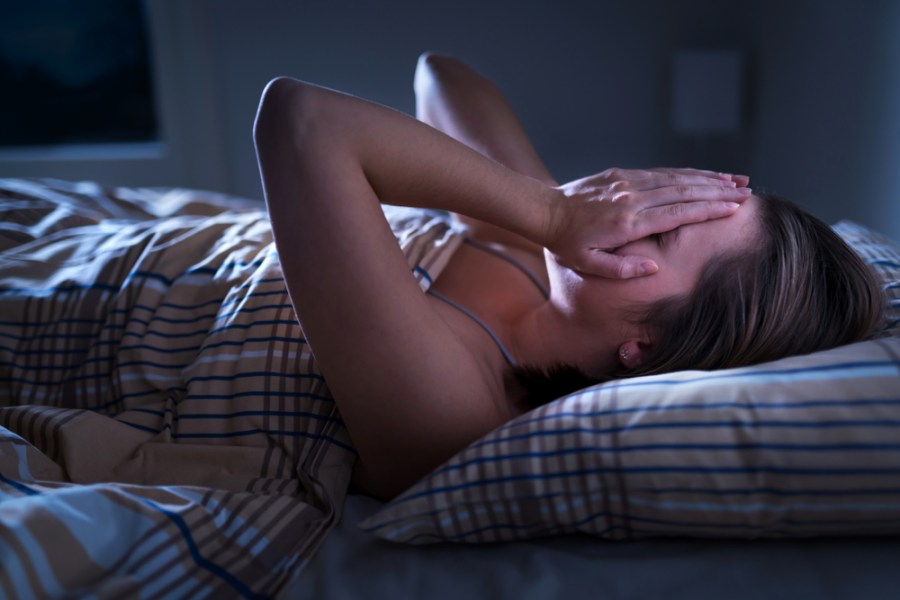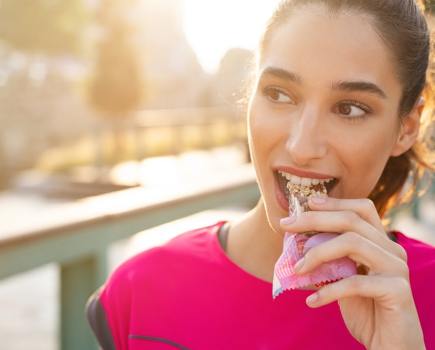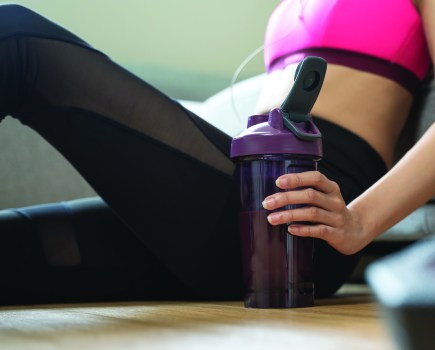Having trouble nodding off at night? Or perhaps you fall asleep easily but regularly find yourself wide awake at 4am. Eve Boggenpoel suggests what you can do about it.
If life since lockdown has seen you missing out on shut-eye, you’re not alone. A study from Kings College London and Ipsos MORI shows that almost two-thirds of Brits have experienced disrupted sleep patterns during the pandemic.
Poor sleep doesn’t just make your feel groggy the next day, over time it impacts your sports performance, reduces your sex drive and increases your risk of diabetes, heart disease and stroke. But the good news there’s plenty you can do about it. Diet and natural remedies can make a difference to both the quality and duration of your sleep.
Natural therapies
Are there any effective natural therapies out there for better sleep and should we be cautious about what we take and whether they interfere with medications? Nish Joshi, holistic expert & founder of The Joshi Clinic says: ‘Firstly, it’s important to rule out any underlying medical conditions that could be affecting your sleep. For example, any imbalance in your thyroid function should be investigated to rule that out as a cause of sleep imbalances.
‘In terms of a natural approach, L-5-hydroxytryptophan (5-HTP) is an incredibly important amino acid that turns into melatonin and mood- and sleep-regulating neurotransmitter serotonin in the body. I don’t disregard melatonin, but on its own may not be a long-term solution, as it is a hormone and may prohibit the body from producing its own and you may find you need to take more and more. Generally, I advise a low dose and work along with 5-HTP (200mg), valerian (2-3,000mg) passiflora and a pure camomile extract (doses vary from person to person). You could also explore hypnotherapy, mind-body techniques, journaling and meditation.
Prescription medications
‘If you are considering taking a sleep remedy and are on prescription medication for anxiety, depression, migraines or thyroid conditions, discuss it with your GP to ensure it’s safe and appropriate for you.’
How effective is magnesium for sleep and why is it effective? Clinical pharmacist, Mike Wakeman (feelaliveuk.com) says: ‘Magnesium is the fourth most common mineral in the human body and affects levels of substances in the brain that have a relaxant effect and facilitate sleep. In the UK, around a fifth of females don’t consume the recommended daily intake of 270mg of magnesium, and 20 per cent of those aged 20-plus don’t even achieve the advised minimum levels.
‘Supplementation with magnesium has been associated with significant improvement in the insomnia severity index, sleep time, sleep efficiency, sleep onset latency and levels of the hormones involved in stress and sleep, namely cortisol and melatonin. Nature’s Way Alive! Ultra Women’s Energy Wholefood Plus Range (£24.99, available from Holland & Barrett) delivers a necessary level of magnesium to address any dietary shortfalls. If you’re looking for a specific sleep supplement that contains magnesium alongside other calming and relaxing botanicals, such as hops, chamomile, lemon balm and saffron, then Neubria Drift (£19.99; available from Holland & Barrett) fits the bill.’
Exercise and sleep
You may be wondering if there is any type of exercise that will help you sleep better and if there is any exercise you should avoid. And does it matter if you exercise in the evening? James Wilson, sleep expert and founder of The Sleep Lab says: ‘Any form of exercise during the day that raises your heart rate will improve sleep because your body will need to repair itself. The early stage of sleep is deep or slow-wave sleep, and it’s incredibly important for muscle regeneration and recovery. So if you’ve exercised, you’ll probably get better quality deep sleep because you’ll need it as a result of the exercise you’ve done.
James adds: ‘Most types of exercise would improve deep sleep, generally, but in an hour or so before bed, doing something where you’re dropping your heart rate and controlling your breathing, such as mindful yoga, Pilates or even taking an evening walk, can contribute to better quality sleep. REM (rapid-eye movement) sleep happens later in the night. It’s associated with muscle memory, so is useful for sports such as football or tennis, but unfortunately, there’s no particular type of exercise to improve REM sleep.’







